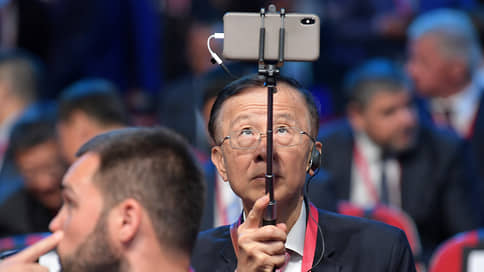Business interest in the Eastern Economic Forum grew by 25% over the year
[ad_1]

The desire to forge connections in the Asia-Pacific region is driving business interest in the Eastern Economic Forum (WEF). Over the year, the demand for travel increased by 25%, in particular, due to representatives of logistics companies. Business activity led to an increase in the average cost of accommodation in hotels in Vladivostok by 46%, which may support the market in conditions of cooling towards the Far East of classic domestic tourists.
Demand for travel to the WEF, which this year will take place on September 10-13, has grown by 25% compared to the same period last year, calculated by Continent Express. Trivio is talking about a 50% year-on-year increase in bookings. Aeroclub has not yet noticed a pronounced increase compared to last year, but indicates that relative to 2021, interest increased by 65%, and 2019 – by 81%. “The numbers may change in the last week before the forum,” says Yulia Lipatova, managing director of Aeroclub.
The WEF has been held on Russky Island in the waters of the Vladivostok City District since 2015 and is considered one of the most significant business events in Russia along with SPIEF. Last year it was visited by 7 thousand guests from 68 countries, the plenary session was held with the participation of Russian President Vladimir Putin. WEF is organized by the Roscongress Foundation.
Alla Ruchkina, head of the sales department at Continent Express, connects business interest in the WEF with the desire to expand business ties in the Asia-Pacific region. Mining, construction and logistics companies traditionally participate in the event, says Evgeny Sinitsa, CEO of Trivio. According to him, only the demand of logisticians increased by 25%, and the interest of the IT industry is also growing. Ms. Ruchkina adds that almost all tourists come to the EEF from Moscow and St. Petersburg. Yulia Lipatova clarifies that there is also a stream from Yuzhno-Sakhalinsk and Khabarovsk.
At the EEF, business tourists, according to Aeroclub, arrive mainly in economy class. The share of business class tickets decreased from 27% to 20% over the year. Guests spend an average of three nights in hotels. Ostrovok.ru specifies that for the EEF period, four-star hotels are most often booked, which cost an average of 10.9 thousand rubles. per night. Yevgeny Sinitsa expects that Vladivostok hotels will be 80-90% full during the EEF due to the demand of business tourists. The most expensive room for these dates now, according to him, costs more than 90 thousand rubles. per day.
Large business events traditionally lead to a short-term increase in the cost of placement. According to Yandex Travel estimates, in 2022 the average price of a booked night in Vladivostok during the EEF period increased by 64% compared to the previous week, to 9.2 thousand rubles. This year, prices have increased by 46%, to 19.9 thousand rubles. week to week. Stanislav Ivashkevich, partner of Ivashkevich Hospitality, notes that in other cities, during the period of events, the cost can increase two to three times. “In Vladivostok, a significant contribution to the accommodation of EEF guests is made by the FEFU buildings, where the tariff is regulated,” he explains.
The surge in demand for hotel services that accompanies the WEF may help the market in the face of cooling interest of classic domestic tourists in traveling to the Far East. According to MTS Travel and Bronevik, the number of hotel bookings in the macro-region this autumn grew by 7% yoy, while across the country — by 21%. Primorye, according to analysts, in the fall of 2022 accounted for 3.5% of all bookings in Russia, this year – 2.7%. OneTwoTrip also noticed a decrease in demand for flights to Vladivostok in September year-on-year.
Sergey Romashkin, vice-president of the Association of Tour Operators of Russia, says that following the results of the past summer season, the interest of tourists in traveling to Primorye decreased by 10%, to Kamchatka – by 12%. He connects the decline with the pronounced positive dynamics of the past two years. As Mr. Romashkin explains, the target tourist flow of the Far Eastern regions is limited to wealthy tourists who travel without children and are interested in outdoor activities. Many eligible travelers, he said, have visited the Far East during the pandemic and geopolitical restrictions, and are now looking for new destinations. Stanislav Ivashkevich calls the cooling expected, agreeing that tourism in the Far East is mainly an active recreation for an amateur, and underdeveloped infrastructure prevents the macroregion from attracting other groups of guests.
However, in Primorye, a decrease in domestic tourist flow will not necessarily lead to a reduction in hotel occupancy. Now this market is supporting the recovery of the incoming flow from China. Citizens of this country in the consular department of the Ministry of Foreign Affairs of the Russian Federation were named among the most active applicants for electronic visas to Russia, indicating that many tourists enter the Russian Federation through the Primorsky Territory.
[ad_2]
Source link





